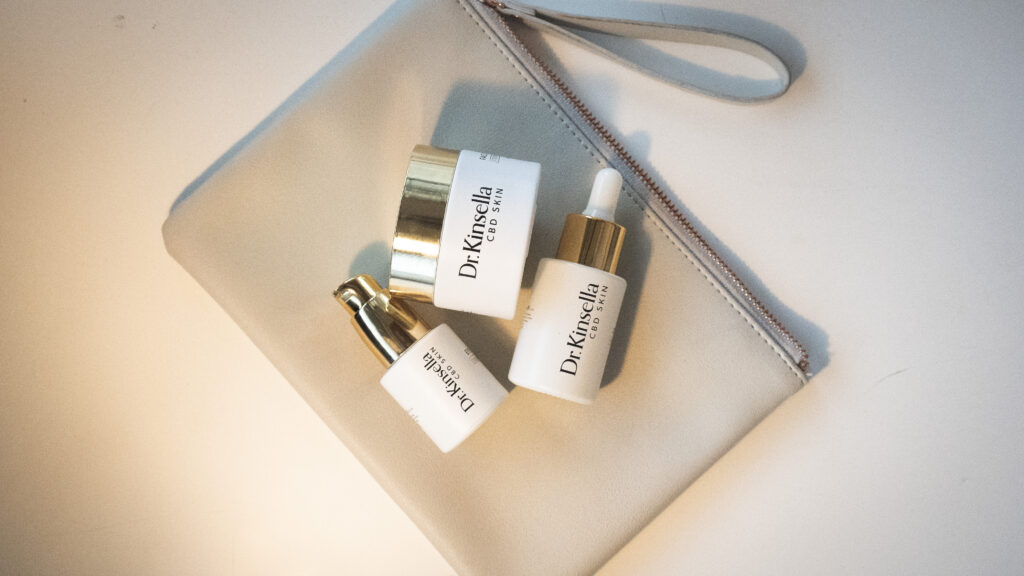GLOW OIL
FACE CREAM
EYE SERUM
How to Use Hyaluronic Acid? A Guide
Key points
- Hyaluronic acid is a polysaccharide naturally found in our skin, joints, hair, and nerves. This molecule helps maintain the structural integrity of the skin and keep it hydrated.
- Skincare products containing hyaluronic acid help our skin to retain moisture, thus reducing the appearance of wrinkles and making it look healthy and supple.
- There are three types of HA used in skincare products: hydrolyzed hyaluronic acid, sodium hyaluronate, and sodium acetylated hyaluronate.
- When choosing HA a product, it’s best to look for a formula that includes vitamin C.

If you’re the type of person who reads the labels on skincare products, you’ve probably heard of hyaluronic acid, which is used as an active ingredient in almost every serum, cream, and moisturiser available on the market. And you’ve probably seen dozens of commercials promising that this chemical will make your skin look young, healthy, and radiant. The good news is that those claims are true, and hyaluronic acid is an essential component of a good skincare routine. However, you must understand how this amazing ingredient works to avoid purchasing products that can cause skin problems and instead choose creams and serums that will make your skin look younger and healthier. But there’s no need to worry, we will tell you everything you need to know about hyaluronic acid in this guide.
What is Hyaluronic Acid?
Hyaluronic acid (HA) is a glycosaminoglycan found in the connective tissue of the human body. Glycosaminoglycans are polysaccharides, which are simple sugar molecules that act as lubricants in our joints, hair, skin, and nerves.
Hyaluronic acid is responsible for giving your skin structural integrity and making it feel and look plump and hydrated. Hyaluronic acid in the skin naturally degrades as we age, but there are some factors that can accelerate this process. This includes things like air pollution and smoking. The degradation of hyaluronic acid accelerates skin ageing, causes wrinkles, and slows the healing of wounds. Fortunately, there are a variety of topical hyaluronic acid products that can help hydrate your skin and make it appear young and plump once again.
One of these products is the Premium Face Cream, which was developed by doctors and skincare specialists over the course of extensive scientific research and clinical studies. Hyaluronic acid is one of the main active ingredients in this skincare product. It functions as a humectant, which keeps water molecules close to the surface of the skin. This prevents water from escaping from outer layers of the skin and slows the rate at which water evaporates. As a result, the skin looks plump and hydrated.
Hyaluronic Acid Benefits
As mentioned above, hyaluronic acid has lots of benefits for our skin. We explain these benefits in more detail below:
Hydration
As mentioned above, hyaluronic acid is one of the best skincare ingredients for retaining moisture. When your skin appears dry and flaky, it means that the top layer of your skin is dehydrated. It is not only a cosmetic issue but also a health concern because dehydrated skin is much more vulnerable and prone to damage by external and environmental factors. If your skin is dry, bacteria can easily infect it, causing acne, atopic dermatitis, and rosacea. That is why hydration is critical to keeping your skin healthy, and hyaluronic acid is one of the best remedies for this.
Ageing Prevention
Skin ageing is associated with loss of moisture. Thus, hyaluronic acid is an important ingredient for keeping your skin young and wrinkle-free. According to scientific studies, people who used anti-wrinkle creams containing hyaluronic acid were able to reduce the depth of wrinkles by 10 to 20%. This means that this ingredient is very effective at combating fine lines.
Lipid Barrier Enhancement
The skin on our body acts as a shield, protecting our internal organs, muscles, and bones. However, it also serves as a barrier against harmful toxins that we encounter in our daily lives. The top layer, known as the epidermis, is always the first to face external threats, and the lipid barrier in the epidermis becomes weaker as we age. We’ve all seen the results: wrinkles, fine lines, dark spots, and so on. Hyaluronic acid strengthens the skin’s natural barrier, helping to slow the breakdown of lipid barriers and keep our skin looking young for as long as possible.
Toned Skin
Saggy skin is a natural side effect of the ageing process that is unfortunately impossible to avoid. This is because elastin degrades with age, causing the skin to lose its plump and bouncy structure. Although hyaluronic acid will not replace your elastin, it can help to improve the appearance of your skin and make it look and feel tighter.
Fast Absorption
Since hyaluronic acid absorbs into the skin very quickly, it’s suitable for use underneath makeup and other skincare products. It’s also great for people who don’t like feeling like there is a ‘greasy’ layer on their skin after using beauty products.
No Irritation
Because hyaluronic acid is naturally produced by our bodies, it rarely causes allergic reactions or skin irritation. For the most part, it is safe to use on all types of skin. However, people who have had severe allergic reactions in the past should get medical advice before using it.
Many Ways to Use
Hyaluronic acid can be applied topically, injected, or taken as a supplement.
HA injections work similarly to topical products in that they bind water and plump up the skin.

Types of Hyaluronic Acid
There are three types of hyaluronic acid commonly used in skincare products:
- Hydrolysed hyaluronic acid is HA that has been broken down into smaller chunks which can easily penetrate the skin. Because this type of hyaluronic acid is less hydrating than others, it is mostly used on oily or combination skin to avoid over-moisturising.
- Sodium hyaluronate is a hyaluronic acid salt that holds 1000 times its weight in water. The salt form is also more stable and less prone to oxidation. Because sodium hyaluronate is much smaller in size, it can penetrate the skin more effectively. Normal skin types benefit from sodium hyaluronate the most because it penetrates deeper into the skin and provides better moisturising results.
- Sodium acetylated hyaluronate works similarly to sodium hyaluronate, but its results last longer. Thus, people who have dry skin or live in dry climates will benefit the most from this type of hyaluronic acid. Products containing this type of HA are also the best choice for use during dry winter months.
Hyaluronic Acid Side Effects
As we’ve already stated, hyaluronic acid is generally safe for all skin types and rarely causes allergic reactions when applied topically. More issues arise when this ingredient is used as an injectable filler. While hyaluronic acid is safe in and of itself, the procedure can be dangerous, which is why it should only be performed by a licensed doctor.
Hyaluronic Acid Concentration
A lot of people who decide to add a product with hyaluronic acid to their skincare routine have trouble choosing the correct concentration of the ingredient. Here are a few tips you should follow:
- Since sodium hyaluronate is a salt, it can draw moisture away from the skin and cause dryness. Thus, only products that contain no more than 2% of this ingredient are available for purchase by individuals for at-home use. Higher concentration products are only used in professional treatments administered by dermatologists and beauticians.
- You may come across skincare product labels that state that a product contains 99% hyaluronic acid. This is false marketing, as if a product was really made with 99% HA, it would be a salt rock.
How to Pick the Right Hyaluronic Acid Product
There are several factors that influence the quality of a topical hyaluronic acid product. Here are some things to keep in mind if you want to choose an effective and high-quality product:
Look for Vitamin C in the Product
It is a good idea to look for a product that contains vitamin C in addition to hyaluronic acid, as, when combined, these two ingredients significantly increase the overall effectiveness of the product. One of such products is Dr. Kinsella Premium Face Cream, which contains vitamin C, jojoba oil, and vitamin B3 to help reduce fine lines and even out the skin tone. This lightweight yet intensely moisturising cream is suitable for a wide range of skin types due to its carefully selected ingredients.
Look for Products that Get Absorbed Quickly
When selecting a product with hyaluronic acid, make sure that it absorbs into the skin quickly. Lower weight hyaluronic acid (for example, one with a molecular weight of 200 as opposed to 2,000 kilodaltons) will pass through the skin more easily, thus being more effective at treating wrinkles.
Water Isn’t A Useless Ingredient
When reading ingredient lists, you may notice that water is often at the top of the list. Many people believe that purchasing products made primarily of water is a waste of money, but it actually enhances the effectiveness of hyaluronic acid, as it’s a powerful humectant which can attract water from the environment.
Final Thoughts
To summarise, hyaluronic acid is a relatively safe and effective ingredient for combating signs of ageing, dehydration, and wrinkles. Because it is simple to use and easy to find, it has become an indispensable part of many people’s skincare routines. However, there are a lot of factors that influence how effective a product containing HA will be. Therefore, we recommend taking lots of care and consideration when selecting skincare products. One great option you can try is Dr. Kinsella Premium Face Cream. It was developed after years of rigorous research and clinical studies, so you can confidently add this product to your skincare routine.
FAQs
Can vitamin C be used with hyaluronic acid?
Yes, you can safely combine vitamin C and hyaluronic acid. When these two ingredients are combined in a skincare product, they increase its effectiveness and provide long-lasting results.
Is it good to use hyaluronic acid every day?
Yes, hyaluronic acid is safe to use in a daily skincare routine. Just make sure to apply this product to clean, damp skin and seal it in with face oil or a moisturiser.
Can hyaluronic acid cause acne?
Since hyaluronic acid does not stimulate skin cell turnover, it cannot cause acne unless you have other health issues.
